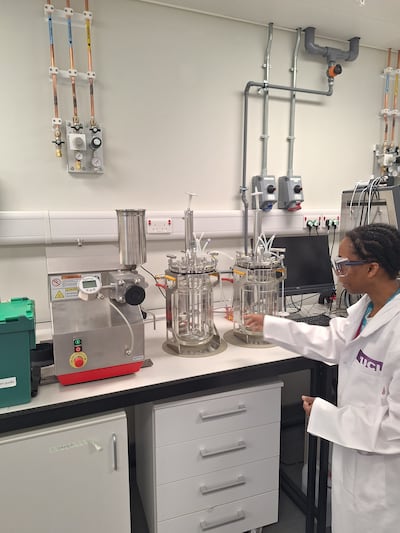Emerging research reveals that biological sex differences may significantly influence Alzheimer’s disease progression and treatment efficacy, underscoring the urgent need for sex-specific analysis in clinical trials and therapeutic development.
The process of manufacturing medicines can often be complex, expensive and harmful to the environment. Initiatives like RESILIENCE UK are seeking to simplify this process, utilizing VR technology to create a more sustainable learning environment for both students and companies.
Despite the significant presence of East Asian professionals in the pharmaceutical industry, their representation in top leadership roles remains disproportionately low. This disparity can be attributed to cultural bias, limited access to influential networks, and systemic barriers within corporate structures.
Looking at a recent McKinsey report alongside our Evaluate data, the below infographic provides insight into the investment scene of pharma and raises questions as to how the industry is seemingly yet to seize the opportunity in women's health.
Despite significant investments in weight loss treatments, pharmaceutical companies face criticism for neglecting to study their drugs in obese patients, possibly leading to incomplete labeling and patient risks, prompting calls for the FDA to enforce more inclusive clinical trials and updated drug information.
As efforts to improve diversity in clinical trials gain momentum globally, regulators in the UK, the EU, Canada, Australia and Japan were asked about their efforts to support representative enrolment.
Royal Philips is at the forefront of the driving environmental sustainability along the Scope 1-2-3 chain. The company hosted a round table in Amsterdam to hear experiences from providers.
The US FDA’s Office of Women’s Health provides a research roadmap to address health concerns specific to women. The FDA recently updated the roadmap, outlining areas in which further research is needed.
As the planet heats up and sea levels rise, the need to reduce carbon emissions is becoming ever more urgent. The life sciences industry is just one of many that are looking to cut the carbon it produces.
Meron Mathias is vice president of CSR and sustainability at Thermo Fisher, whose specialty diagnostics division makes it the fifth leading player by revenues in the global IVD industry. In this podcast, she reflects on Thermo Fisher’s early commitment to ESG and sustainability reporting, its Scope 1, 2 and 3 targets and how regulation is moving industry towards a mandatory disclosure landscape.
In her role as Boehringer's senior vice president and global head of Development Sciences, Xiaorong He emphasizes patient-centric innovation and sustainability. She is committed to incorporating patient insights into product development and advancing eco-friendly practices within the company's R&D pipeline.
The E in ESG: SUDs, reuse, disposables, refurbishing, reprocessed devices? Multiple panelists at the 2024 MedTech Forum addressed the role medtech manufacturers should have in the climate change challenge.
Stefan Woxström, senior vice president of AstraZeneca, Europe and Canada, discusses the growing challenges in the industry and addresses the role big pharma must adopt in resolving them.
Record attendance at the 2024 MedTech Forum in Vienna heard industry leaders voice optimism grounded in realism about future developments for Europe’s medtech industry, markets and delivery of care to patients. In Vivo filtered out 16 trends to watch.
Astellas Pharma’s chief commercial officer discusses the biopharma industry’s responsibility to drive change in health care.
The use of Artificial intelligence, data analytics and digital technologies hold the potential to transform pharmaceutical R&D and massively improve productivity. However, to achieve game-changing impact, the right technology infrastructure is required.
Industry is researching alternatives to PVC for medicines packaging, but content integrity must remain paramount, says Circpack consultancy’s Filipe Viera de Castro, who puts the case for companies to contribute to waste management costs.
Leadership succession is proceeding within South Korean pharmaceutical corporations such as Daiichi Sankyo Korea, Astellas Pharma Korea, Kyowa Kirin Korea as well as MSD Korea.
The journey to Net Zero, described as ‘the defining issue of our time,’ will get harder in the coming decade. Failure to keep up the pressure will result in more long-term health conditions, increasing deaths and higher costs. The UK NHS is a Net Zero exemplar globally, but without a systemic approach, its compliance efforts could stutter.
Recent US government initiatives and growing investor interest are important for developing female-specific therapeutics, but funding is not yet where it should be.



















